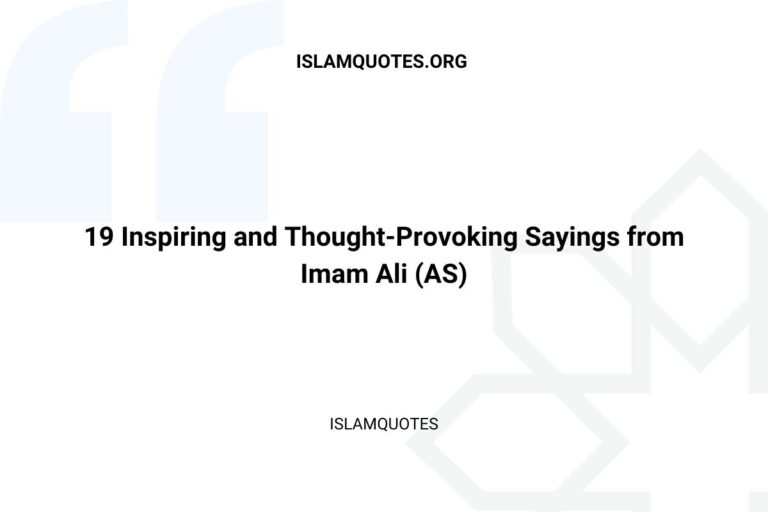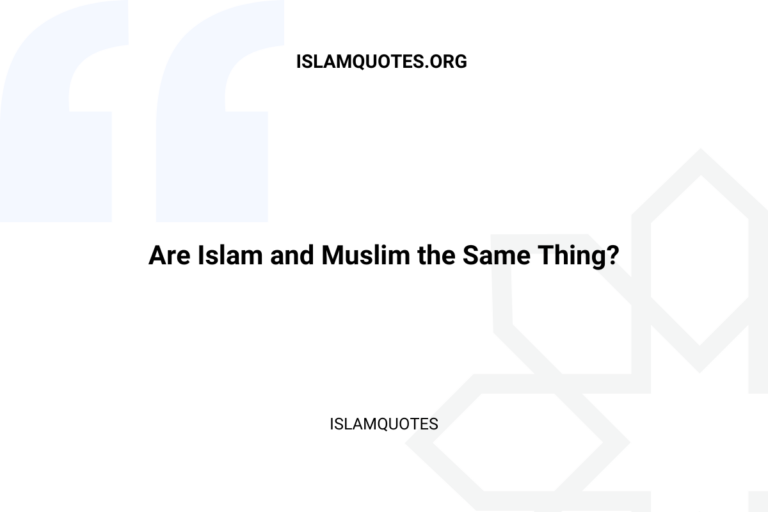Introduction
Understanding what Islam means goes beyond a simple definition. It’s about exploring a rich and multifaceted faith that has touched millions of lives across the globe. Islam is not merely a religion; it is a way of life, a source of peace, and a beacon of guidance for over 1.8 billion people worldwide. This article aims to unravel the true essence of Islam, its core beliefs, its historical journey, and its profound impact on diverse cultures and civilizations.
With a deep dive into the heart of Islam, we will explore its beliefs, traditions, and values while addressing common questions and misconceptions. By the end of this article, you’ll gain a comprehensive understanding of what Islam means and why it holds such significance for millions around the world. Let’s begin this enlightening journey.
What Islam is All About
The Essence of Islam
Islam is a monotheistic religion that emphasizes the oneness of God, known as Allah in Arabic. The word “Islam” itself means “submission” or “surrender” to the will of Allah, reflecting a fundamental aspect of the faith—complete devotion to God. The term is derived from the Arabic root “S-L-M,” which also forms the basis for the word “Salaam,” meaning “peace.” Thus, Islam is often described as a religion of peace, guiding its followers, known as Muslims, towards a harmonious and fulfilling life.
Islam is not just a set of beliefs but a comprehensive system that encompasses various aspects of life, including spiritual, ethical, legal, and social dimensions. It provides a holistic framework for living, promoting values such as justice, compassion, honesty, and charity.
The Core Tenets of Islam
The foundation of Islam is built upon six core beliefs and the Five Pillars of Islam:
Six Core Beliefs:
- Belief in Allah (Tawhid): The central tenet of Islam is the belief in the oneness of Allah, who is merciful, compassionate, and all-powerful.
- Belief in Angels: Angels are considered messengers of Allah, created from light, and serve various functions in the universe.
- Belief in the Holy Books: Muslims believe in the divine scriptures revealed to various prophets, including the Qur’an, which is the final and unaltered word of Allah.
- Belief in Prophets: Islam acknowledges all prophets sent by God, from Adam to Muhammad (peace be upon him), who is considered the last prophet.
- Belief in the Day of Judgment: Muslims believe in the afterlife, where every individual will be held accountable for their deeds and judged by Allah.
- Belief in Divine Decree (Qadar): This belief emphasizes that everything happens according to Allah’s will and divine wisdom.
The Five Pillars of Islam:
- Shahada (Faith): The testimony of faith, declaring that there is no god but Allah and Muhammad is His messenger.
- Salah (Prayer): Performing the five daily prayers as a means of connecting with Allah and seeking guidance.
- Zakat (Charity): Giving to the needy and supporting community welfare through almsgiving, usually 2.5% of one’s savings annually.
- Sawm (Fasting): Observing fasts during the holy month of Ramadan, a time for spiritual reflection and self-discipline.
- Hajj (Pilgrimage): Undertaking the pilgrimage to Mecca at least once in a lifetime, if physically and financially possible, symbolizing unity and devotion.
These pillars form the foundation of a Muslim’s faith and practice, providing a structure that guides their everyday life.
Islam’s Vision for a Just Society
Islam envisions a society where justice, equality, and peace prevail. It emphasizes the importance of human dignity, compassion, and social responsibility. Islamic teachings advocate for the welfare of the community, promoting values like honesty, integrity, and respect for others. By nurturing these principles, Islam aims to create a harmonious society where individuals coexist peacefully and contribute positively to the world.
What Islam Believes In
The Oneness of God (Tawhid)
The cornerstone of Islamic belief is the concept of Tawhid, or the oneness of God. Muslims believe in a single, indivisible God who is eternal, all-knowing, and omnipotent. This belief forms the essence of Islam and is expressed through the Shahada, the Islamic declaration of faith: “There is no god but Allah, and Muhammad is His messenger.” This profound statement encapsulates the monotheistic nature of Islam and serves as a guiding principle for all Muslims.
The Importance of Prophethood
Islam recognizes a long line of prophets, from Adam to Muhammad (PBUH), who were chosen by Allah to guide humanity. These prophets delivered divine messages and exemplified the path of righteousness. The final prophet, Muhammad (PBUH), is regarded as the “Seal of the Prophets,” whose teachings complete and perfect the divine message. Muslims follow the Sunnah, the practices and sayings of the Prophet Muhammad, which complement the teachings of the Qur’an.
The Holy Qur’an: The Word of God
The Qur’an is the holy book of Islam, believed to be the literal word of God as revealed to Prophet Muhammad (PBUH) through the Angel Gabriel. It serves as a comprehensive guide for life, offering wisdom, laws, and spiritual insights. The Qur’an is revered for its eloquence, clarity, and profound teachings, providing guidance on every aspect of life.
Muslims engage with the Qur’an regularly, reciting its verses, reflecting on its meanings, and striving to implement its teachings in their daily lives. The Qur’an’s timeless wisdom and universal principles continue to inspire and guide Muslims worldwide.
The Role of Hadith
In addition to the Qur’an, the Hadith holds significant importance in Islam. The Hadith comprises the sayings, actions, and approvals of Prophet Muhammad (PBUH), providing insights into his character and the application of Islamic teachings. For Shia Muslims, the sayings and traditions of the Ahl al-Bayt (the family of the Prophet) and the Shia Imams are also highly regarded, offering further layers of understanding and practice.
Social Justice and Compassion
Islam places a strong emphasis on social justice, advocating for the welfare of all individuals and communities. It promotes values such as compassion, kindness, and generosity, encouraging Muslims to support the less fortunate and contribute positively to society. The practice of Zakat exemplifies this commitment to social responsibility, as Muslims are required to give a portion of their wealth to those in need.
In the words of Imam Ali (AS), “Wealth is no more than a trust, and what you spend in the way of Allah will be your real wealth.” This saying underscores the Islamic principle that true wealth lies in helping others and making a positive impact in the world.
What Islam is in Iran
The Influence of Islam in Iranian Culture
Islam has had a profound influence on Iranian culture, shaping its art, architecture, literature, and societal norms. Iran, a predominantly Shia Muslim country, embraces a rich tapestry of Islamic traditions and practices that have been woven into the fabric of Iranian life.
The arrival of Islam in Iran marked a significant transformation, as Persian culture intertwined with Islamic values, creating a unique and vibrant civilization. This blend is evident in the stunning architecture of mosques, the intricate designs of Persian carpets, and the profound poetry of renowned Iranian poets like Rumi and Hafez.
Shia Islam: The Predominant Sect in Iran
Iran is predominantly Shia Muslim, with the majority of its population adhering to the Twelver Shia school of thought. Shia Islam emphasizes the leadership of the Ahl al-Bayt, the family of the Prophet Muhammad, and recognizes the twelve Imams as spiritual and political successors. This belief distinguishes Shia Islam from Sunni Islam, which is the largest branch of Islam globally.
The reverence for the Imams, particularly Imam Ali (AS) and Imam Hussein (AS), plays a central role in Iranian religious and cultural identity. The annual commemoration of Ashura, marking the martyrdom of Imam Hussein (AS) in the Battle of Karbala, is a significant event in Iran, symbolizing the struggle for justice and righteousness.
The Role of Islam in Iranian Society
Islam plays a vital role in shaping Iranian society, influencing its laws, customs, and daily life. The Iranian constitution is based on Islamic principles, and the country’s legal system incorporates elements of Islamic law, known as Sharia. This integration of religion and governance reflects the importance of Islam in the public and private spheres of Iranian life.
Islamic teachings guide various aspects of social interaction, emphasizing the importance of family, community, and moral conduct. Iranian society values hospitality, respect for elders, and the pursuit of knowledge, reflecting the timeless principles of Islam.
Iran’s Contributions to Islamic Scholarship
Iran has made significant contributions to Islamic scholarship and thought, producing renowned theologians, philosophers, and scholars throughout history. The country’s rich intellectual tradition has played a vital role in the development of Islamic jurisprudence, theology, and philosophy.
Iran is home to several prestigious religious seminaries, such as those in Qom and Mashhad, where scholars engage in the study of Islamic sciences and jurisprudence. These institutions continue to shape the discourse on Islamic thought and provide spiritual guidance to millions of Muslims worldwide.
How Islam Began & How Islam Started
The Birth of Islam
Islam began in the 7th century CE in the Arabian Peninsula, in the city of Mecca. It was here that the Prophet Muhammad (PBUH) received the first revelation from Allah through the Angel Gabriel, marking the birth of a new monotheistic faith. This momentous event laid the foundation for the spread of Islam, which would soon reach far beyond the Arabian Peninsula.
The initial message of Islam emphasized the oneness of God, calling people to worship Allah alone and abandon idolatry. This message challenged the prevailing social norms and practices of the time, promoting values of justice, equality, and compassion.
The Early Years of Islam
The early years of Islam were marked by challenges and perseverance. The Prophet Muhammad (PBUH) faced opposition from the Quraysh tribe, who resisted his teachings and sought to undermine his mission. Despite facing persecution, the Prophet remained steadfast, spreading the message of Islam with unwavering dedication.
The migration to Medina (Hijra) in 622 CE marked a turning point in Islamic history. This event not only provided a safe haven for Muslims but also established a cohesive Muslim community that would form the nucleus of the Islamic state. The establishment of the Constitution of Medina laid the foundation for a just and inclusive society, reflecting the principles of Islamic governance.
The Spread of Islam
The spread of Islam beyond the Arabian Peninsula occurred rapidly, fueled by a combination of spiritual zeal and strategic diplomacy. Within a century, Islam had reached regions as diverse as the Middle East, North Africa, and parts of Europe and Asia. This expansion was not merely a result of conquest but was also driven by the appeal of Islamic values, which resonated with people seeking social justice and spiritual fulfillment.
The spread of Islam was characterized by the establishment of a rich and diverse civilization, where various cultures and traditions converged to create a vibrant Islamic world. The contributions of Muslim scholars, scientists, and artists during the Golden Age of Islam enriched human knowledge and laid the foundation for advancements in various fields.
The Legacy of the Prophet Muhammad (PBUH)
The legacy of the Prophet Muhammad (PBUH) continues to inspire Muslims worldwide. His exemplary character, wisdom, and leadership serve as a model for ethical conduct and compassionate living. The Prophet’s teachings emphasize the importance of love, kindness, and humility, encouraging Muslims to embody these virtues in their daily lives.
The sayings of the Prophet Muhammad (PBUH) and the guidance of the Imams remain a source of wisdom and inspiration for Muslims seeking to navigate the challenges of modern life while staying true to their faith.
Frequently Asked Questions (FAQs)
What Does Islam Mean?
Islam means “submission” or “surrender” to the will of Allah. It is a monotheistic religion that emphasizes the oneness of God and provides a comprehensive framework for life, guiding its followers towards spiritual fulfillment and social justice.
What are the Core Beliefs of Islam?
The core beliefs of Islam include the oneness of Allah, belief in angels, divine scriptures, prophets, the Day of Judgment, and divine decree. These beliefs form the foundation of Islamic faith and practice.
How is Islam Practiced in Daily Life?
Muslims practice their faith through the Five Pillars of Islam, which include faith, prayer, charity, fasting, and pilgrimage. These practices are complemented by ethical conduct, social responsibility, and a commitment to justice and compassion.
What is Shia Islam?
Shia Islam is a branch of Islam that emphasizes the leadership of the Ahl al-Bayt, the family of the Prophet Muhammad (PBUH), and recognizes the twelve Imams as spiritual and political successors. Iran is predominantly Shia Muslim, and this belief system plays a central role in its religious and cultural identity.
How Did Islam Spread Globally?
Islam spread through a combination of spiritual appeal, strategic diplomacy, and the efforts of Muslim scholars, traders, and missionaries. The message of Islam resonated with diverse communities, contributing to its rapid expansion across regions.
Table: Key Aspects of Islam
| Aspect | Description |
|---|---|
| Meaning | Submission to the will of Allah |
| Core Beliefs | Oneness of God, Prophets, Holy Books, Angels, Day of Judgment, Divine Decree |
| Five Pillars | Shahada, Salah, Zakat, Sawm, Hajj |
| Holy Texts | Qur’an, Hadith |
| Major Branches | Sunni, Shia |
| Cultural Influence | Art, Architecture, Literature, Science |
| Contributions | Mathematics, Medicine, Philosophy, Astronomy |
Conclusion
In conclusion, Islam is a religion of profound depth and significance, offering guidance and inspiration to millions worldwide. Understanding what Islam means requires exploring its rich history, core beliefs, and cultural impact. From its early beginnings in Mecca to its influence in modern Iran, Islam continues to be a force for peace, justice, and spiritual fulfillment.
For those interested in exploring Islamic teachings further, consider visiting IslamQuotes.org for a rich collection of Islamic hadiths and wisdom from Shia Imams.








